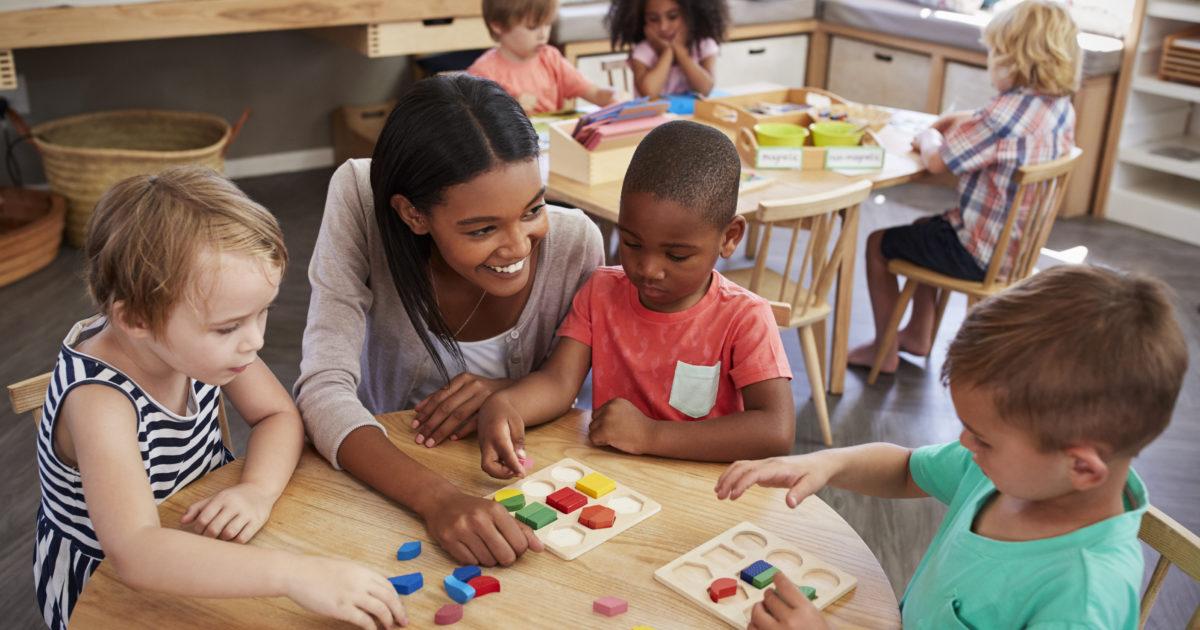Early childhood education, such as Pre-School, is a vital component in developing young children’s physical, social, and intellectual skills. Pre-school helps children learn important academic concepts and develop strong social-emotional skills that will lead to successful school experiences. By exposing children to a variety of games and activities early on in their educational careers, preschool also helps to foster creativity, curiosity and independent problem-solving abilities. Participation in playgroups comprised of peers helps children develop communication, collaboration and self-regulation skills needed for sharing, taking turns, and learning how to get along with others. In addition to providing a safe environment where young students can explore their interests while gaining knowledge through hands-on experiences with materials and technology, pre-school also prepares students socially and emotionally by teaching language acquisition abilities, including letter recognition, phonics, and basic conversation skills so they are prepared for kindergarten.
Importance of nursery
Nursery plays a vital role in providing children with a secure and nurturing learning atmosphere that helps them start to cultivate and refine essential skills such as socialization, communication, self-regulation, language, and fine motor skills. A nursery school education also gives a head start in problem solving, math concepts, and cognitive development. Furthermore, this kind of early childhood education is essential for readying each child for the transition into kindergarten since it helps foster greater social and emotional resilience. Through educational programs tailored specifically for three-to-five year olds, children can explore their sense of autonomy while taking advantage of the structure provided by qualified professionals who are knowledgeable about developmental milestones.
Services provided by Pre-School
Modern schools provide a variety of educational facilities which are tailored to the needs of pre-schoolers. These may range from basic learning materials such as educational toys, computers and books to more complicated interactive multi-media activities and manipulatives. With the aim of actively engaging children in active learning, pre-schools typically employ a variety of effective teaching methods such as play-based learning, hands on experiences and outdoor exploration. This helps children build gross motor skills, fine motor coordination, social skills and develop language capabilities. Similarly, pre-schools also offer ample space for physical fitness activities to supplement classroom education -this is achieved by means of playgrounds, sports fields and jungle gyms etc. Pre-schools can also often be endowed with special facilities such as swimming pools or air-conditioned classrooms providing an environment conducive to learning. Go to the site https://www.happybunnies.co.uk/gillingham-nursery/ for all the details.

